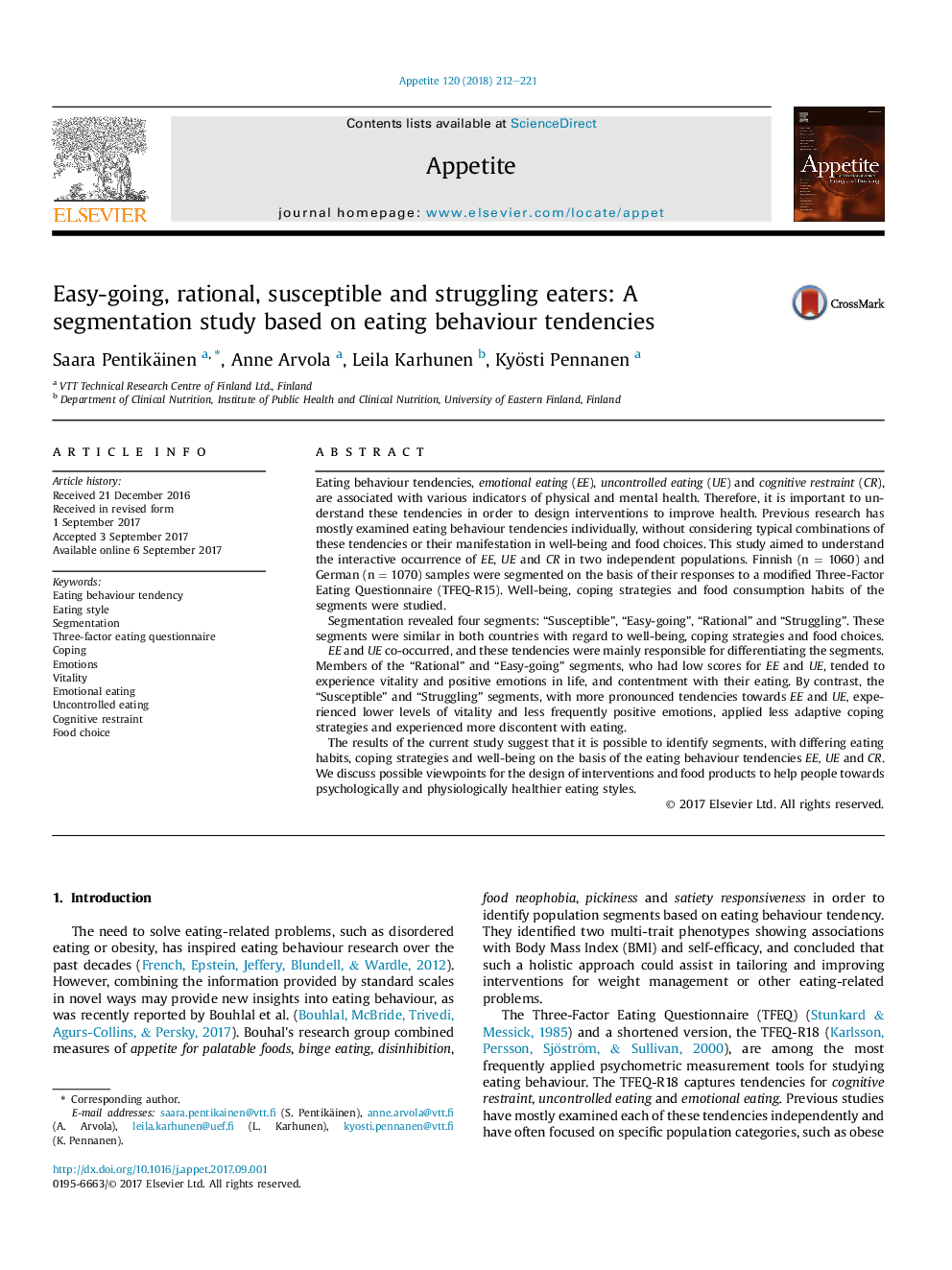| کد مقاله | کد نشریه | سال انتشار | مقاله انگلیسی | نسخه تمام متن |
|---|---|---|---|---|
| 5043935 | 1475360 | 2018 | 10 صفحه PDF | دانلود رایگان |
Eating behaviour tendencies, emotional eating (EE), uncontrolled eating (UE) and cognitive restraint (CR), are associated with various indicators of physical and mental health. Therefore, it is important to understand these tendencies in order to design interventions to improve health. Previous research has mostly examined eating behaviour tendencies individually, without considering typical combinations of these tendencies or their manifestation in well-being and food choices. This study aimed to understand the interactive occurrence of EE, UE and CR in two independent populations. Finnish (n = 1060) and German (n = 1070) samples were segmented on the basis of their responses to a modified Three-Factor Eating Questionnaire (TFEQ-R15). Well-being, coping strategies and food consumption habits of the segments were studied.Segmentation revealed four segments: “Susceptible”, “Easy-going”, “Rational” and “Struggling”. These segments were similar in both countries with regard to well-being, coping strategies and food choices.EE and UE co-occurred, and these tendencies were mainly responsible for differentiating the segments. Members of the “Rational” and “Easy-going” segments, who had low scores for EE and UE, tended to experience vitality and positive emotions in life, and contentment with their eating. By contrast, the “Susceptible” and “Struggling” segments, with more pronounced tendencies towards EE and UE, experienced lower levels of vitality and less frequently positive emotions, applied less adaptive coping strategies and experienced more discontent with eating.The results of the current study suggest that it is possible to identify segments, with differing eating habits, coping strategies and well-being on the basis of the eating behaviour tendencies EE, UE and CR. We discuss possible viewpoints for the design of interventions and food products to help people towards psychologically and physiologically healthier eating styles.
Journal: Appetite - Volume 120, 1 January 2018, Pages 212-221
